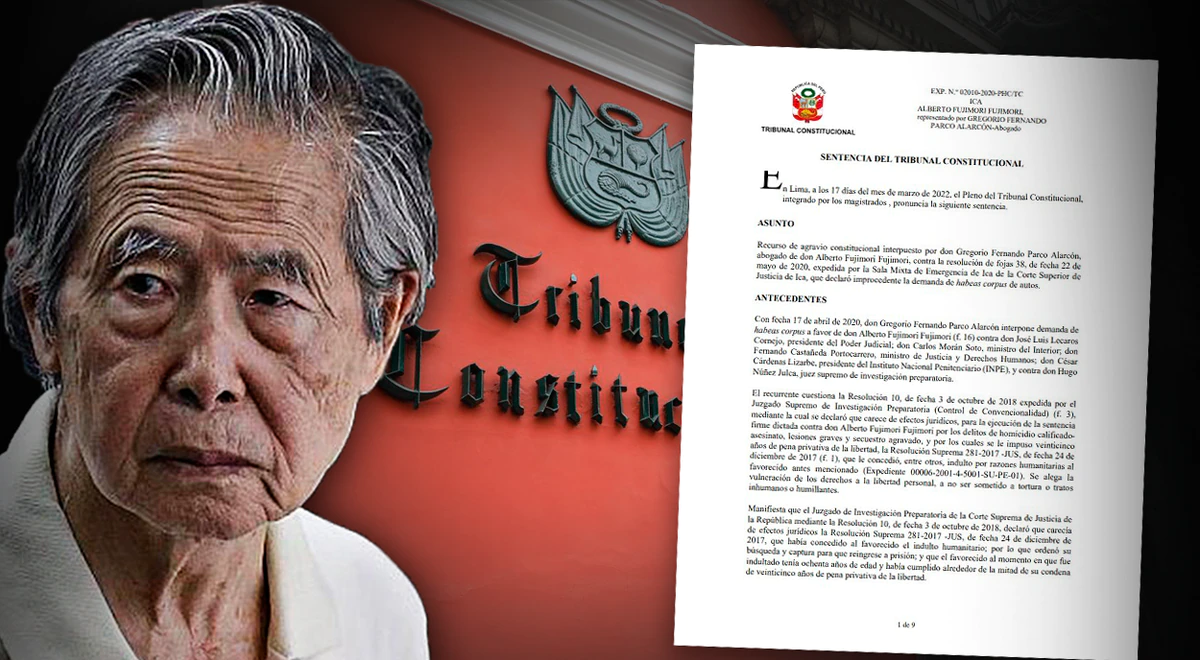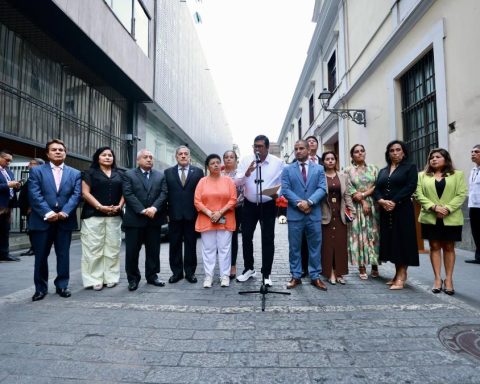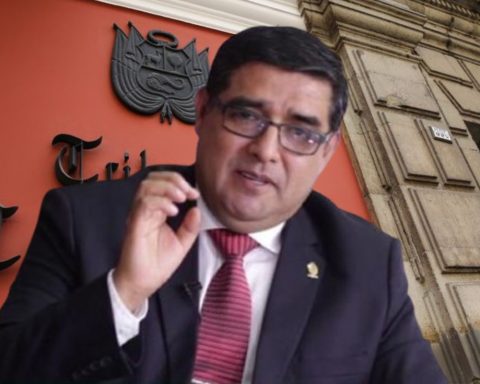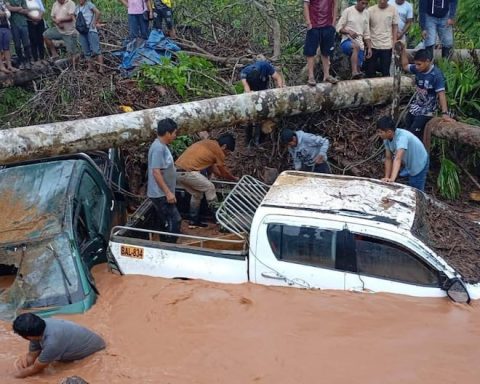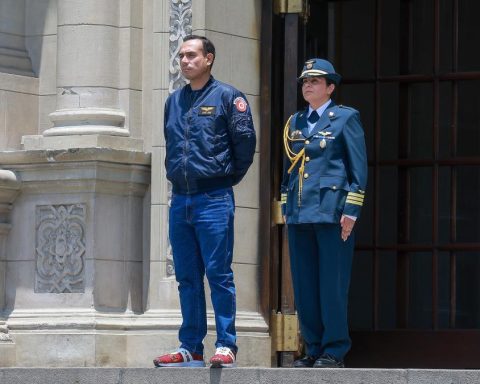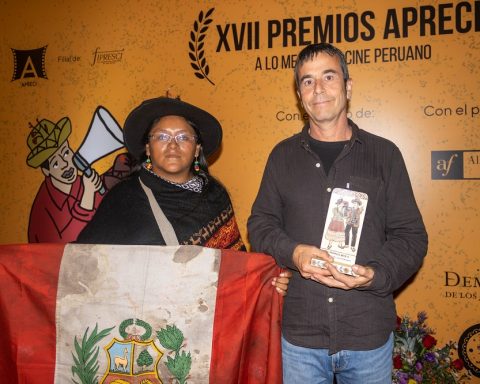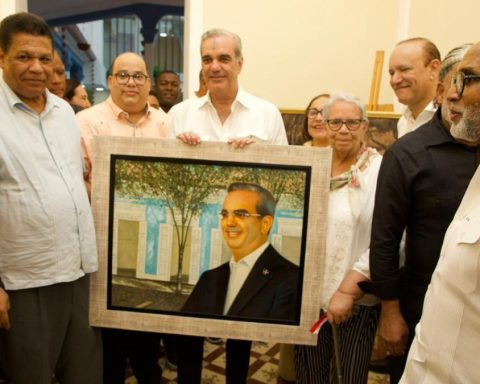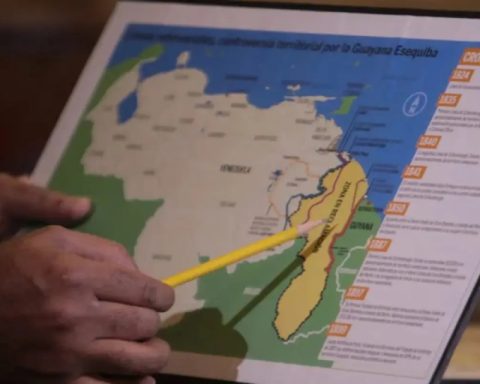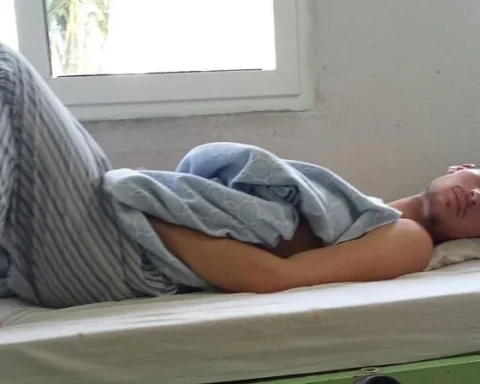The Constitutional Court (TC) will publish – in the next few days – the complete sentence that restored the pardon to the former president Alberto Fujimoriand ordered his immediate release. The Republic had access to a draft of the ruling, which consists of nine pages of arguments, where it is concluded that the habeas corpus filed by the lawyer was founded. Gregory Parcoas well as restore the effects of Supreme Resolution 281-2017-JUS, of December 24, 2017, through which Pedro Pablo Kuczynski pardoned the former president imprisoned for the crimes of La Cantuta and Barrios Altos.
The TC, through 28 points, exposes the Arguments for which he decides to declare habeas corpus founded in favor of Alberto Fujimori. Likewise, it is noted that the main support of parco is that the resolution of Supreme Court of Preparatory Investigation that annuls the pardon of Alberto Fujimori “lacks legal effects” and falls into a “violation of the rights to personal freedom” of the former head of state.
In point 14, on page 5 of the document, the CT expresses the respect for the power of a President of the Republic to grant a pardon, as a presidential pardon that is part of its powers: “In relation to the humanitarian pardon that was annulled by the resolution in question and its confirmation, it should be noted that article 118, numeral 21, of the Constitution expressly confers to the President of the Republic, among others, the prerogative to grant pardons”, reads the letter.
YOU CAN SEE: Kuczynski: “Kenji told me that he and his family hoped that his father could receive a pardon”
In the following point (15), the highest institution on constitutional issues warns that the right to grant a pardon cannot be conditioned or restricted: “Such prerogative, which consists of the power to suppress the sentence imputed to a convicted person, is granted by the limited constitutional numeral, without establishing constitutional conditions for its exercise, which prevents subjecting it to infra-constitutional regulations that constrain, limit or restrict it”, they add. Although it is also noted that it is not “exempt from jurisdictional control”.
TC agrees with Gregorio Parco
The main argument of the lawyer is that a resolution of a Supreme Court of Preparatory Investigation it cannot annul a provision given at the level of the Presidency of the Republic. In its point 18, the TC warns that the legal system that regulates the pardon is in the Political Constitution of Peru, so its regulation cannot fall into “a rule of infralegal rank.”
“It cannot be lost sight of that our legal system regulates the figure of pardon from the ConstitutionTherefore, its scope for eventual control must be derived from it or from a legal standard that develops its characteristics, without implying an unconstitutional reduction of its scope. In this sense, a rule of infralegal rank cannot be used as a reference framework to carry out an eventual control of its constitutionality, since this would contravene the block of constitutionality to which every judge must refer to carry out an evaluation of such a degree. they explain.
YOU CAN SEE: Keiko Fujimori could not see her father in prison: “I have been informed that he is stable”
Later, at point 23, the constitutional Court warns – as part of the argument for his judgment – that the reasons that led to annulment of the pardon Alberto Fujimoriin 2018, fall into presumptions and subjectivities: “This Constitutional Court, beyond the vice of material incompetence from which both judicial resolutions suffer, warns that its arguments are based on subjective presumptions about irregularities that are not such, if we are faced with to a humanitarian pardon of an adult over 79 years of age, because this specific figure of extinction of the sentence has the ultimate objective of avoiding the death in prison of the inmate who has been serving a final sentence, as a result of the health conditions that afflict him”, they add.
Finally, at point 26, the TC summarizes its position on the appeal presented by Gregory Parco and the questioning of the pardon granted in December 2017: “In this sense, the resolution in question and its confirmation have an apparent motivation, since, in addition to being vitiated by incompetence, they also violate the right to due motivation of judicial decisions, by containing a subjective motivation, based on irregularities and unproven presumptions, distancing its argument from the relevant constitutional and conventional parameters”, they sentence.
annulment of pardon
The pardon to Alberto Fujimori was annulled in October 2018, when the Supreme Court made a decision against ordering his immediate capture and subsequent imprisonment. This is due to the fact that both the Barrios Altos and La Cantuta massacres have resolutions of the Inter-American Court of Human Rights (IA Court) and they do not conform to the rules established regarding the granting of humanitarian pardons, as they refer to prisoners convicted of crimes against humanity.
YOU CAN SEE: Alberto Fujimori: Room that sees the Pativilca massacre will evaluate this Thursday the exit impediment
In the decision of the supreme magistrate Hugo Nunez Julca The events that led Kuczynski to sign the pardon were also analyzed. The form was questioned and some irregularities were detected in the procedure granted by the then president. Last Thursday, March 17, the TC ruled in favor of the former president Alberto Fujimoriand ordered his immediate release.
